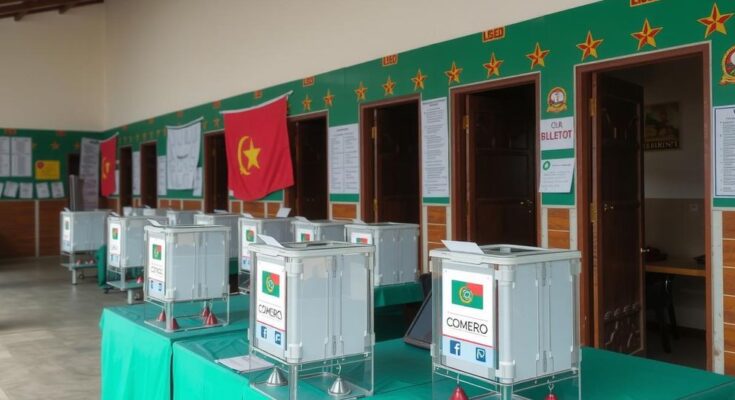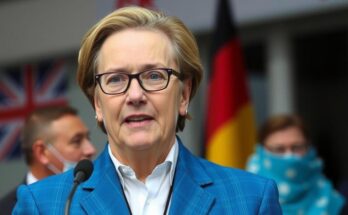Voters in Comoros are casting ballots for a 33-seat parliament amid allegations of election irregularities. Approximately 338,000 voters are registered, with nearly 100 candidates in the race. President Azali Assoumani, who has ruled since 1999, faces accusations of authoritarianism and potential nepotism. While some opposition parties call for a boycott, others advocate for participation to expose the government’s flaws. Election results are expected by Friday.
Voters in the Comoros archipelago are participating in an election for the 33-seat parliament amidst allegations of irregularities from the opposition following the re-election of President Azali Assoumani last year. The ruling party has dismissed these claims, while polling stations opened early on Sunday for around 338,000 registered voters. This election marks a significant event, as the last parliamentary elections were held in January 2020, with nearly 100 candidates qualified by the Supreme Court.
Assoumani, who seized power in a coup in 1999 and has since won three elections, faces accusations of authoritarianism and intentions to prepare his eldest son, Nour El-Fath, for succession post-2029. His son was recently granted extensive powers to oversee government affairs. Although certain opposition groups, notably the Juwa party led by imprisoned former President Ahmed Abdallah Sambi, have encouraged a boycott of the election, other factions within the opposition urge participation.
Hamidou Karihila, representing the opposition Hope of the Comoros party, emphasized that participation would expose the flaws of the current regime and hasten its downfall, stating, “The Azali regime is weakened … by participating in these elections we are contributing to further exposing the flaws in its system and accelerating its inevitable fall.” Election results are anticipated by Friday.
The political landscape of Comoros has been historically tumultuous, characterized by coups and allegations of electoral fraud. Azali Assoumani has served multiple terms as president since coming to power in 1999, with his leadership facing scrutiny due to claims of increasing authoritarianism. The opposition’s discontent is amplified by the recent consolidation of power among Assoumani’s family members, raising concerns about political succession and governance. The participation of voters in the parliamentary elections is critical as it reflects the current sentiments of the populace amidst this complexity.
As the Comorian voters head to the polls for a crucial parliamentary election, the unfolding events reflect deep-seated tensions within the nation’s political structure. The allegations of electoral malpractice, the opposition’s call for a boycott, and the potential implications of succession politics are pivotal themes that could shape the future of governance in Comoros. Results from this election will be closely monitored and may have significant ramifications for the country’s political trajectory.
Original Source: www.canberratimes.com.au




